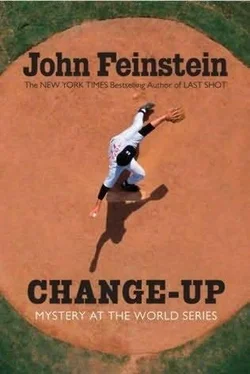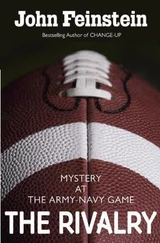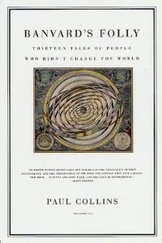“Turns out David was right,” she said, standing up. “He said I’d be wasting my time trying to convince you there was no story to write, that you were so insanely jealous of him you’d want to get Dad no matter what.”
“But this wasn’t a setup, right?” he said, gritting his teeth a little because he was in pain. She was stronger than she looked.
And she looked as if she might hit him again-but she didn’t. Instead she just said, “I thought journalists were supposed to be the good guys-not people who ruin people’s lives.”
She turned on her heel and stormed away from the table and out of the restaurant. Stevie looked around and saw people staring at him. The waiter hustled over to the table.
“Is everything okay, sir?” he asked. “Do you need some ice or something?”
Stevie figured his cheek was probably bright red, judging by the burning he was feeling. “No ice,” he said. “Just the check would be good.”
He sat back in the booth again. Covering the World Series was becoming less and less fun by the minute.
STEVIE LEFT THE RESTAURANT QUICKLY, checking to make sure Morra wasn’t outside waiting for him. Seeing no one familiar, he called Kelleher.
“How’d it go?” he asked.
“It’s too complicated for the phone,” Stevie said. “I need directions.”
Thankfully, the directions were pretty simple. Down three blocks to E Street and then up six blocks to the Herald’s offices.
The guard at the door called Kelleher to come down and get him. When Bobby saw Stevie’s cheek, his jaw dropped.
“What happened to you?” he said. “No, wait, tell me when we get upstairs. Clearly, it’s a long story.”
For all the writing he’d done, Stevie had never been in the newsroom of a major newspaper before, and he was awed by how big it was. Since it was Saturday, the massive room was fairly empty.
Kelleher led Stevie through the newsroom to the sports section. A number of writers and editors were sitting at their desks, some working on computers, others reading the newspaper. Several were seated around a television set watching a college football game.
“Navy-Notre Dame,” Kelleher said. “Navy is trying to start another streak.”
“Streak?” Stevie said. He thought he remembered that Navy had broken a forty-three game losing streak to Notre Dame a few years earlier. His dad had called it one of the great upsets in the history of football.
“Yeah,” Kelleher said. “Navy beat them one in a row, then the Irish won last year.”
“Hey, Matt, how’s Coach Rockne doing?”
“It’s seven to seven in the second quarter,” Matt answered. “Coach Rockne just went for a fourth and nine and got stopped.”
“Coach Rockne?” Stevie asked.
“Yeah, we call Charlie Weis Coach Rockne because he thinks he’s so smart, he might as well be Knute Rockne. Not so much the last two years when he was ten and fifteen.”
He introduced Stevie to Matt Rennie, who was the deputy sports editor.
“You’ve done great work,” Rennie said, shaking Stevie’s hand. “Especially considering you’ve had to put up with Bobby.”
“I’d be so much better if I had some decent editing,” Kelleher said.
“Don’t hold your breath waiting for that to happen, pal,” Rennie said with a smile before returning to the game.
As they walked back to the small glass office that said Bobby Kelleher on it, Kelleher said quietly: “Best editor we’ve got. By far.”
“But you’d never tell him that, would you?”
“I’d sooner die.”
They sat down in Kelleher’s office.
“So, fill me in,” Kelleher said.
Stevie did-starting with the slap and then working backward. Kelleher let out a low whistle. “You have quite an effect on young women, don’t you?” Then he turned serious: “Clearly, she thought you’d be so charmed by her that you’d let her go off the record so she could take you off the story the way David did with Susan Carol.”
“Susan Carol had no idea what he was going to tell her…,” Stevie said.
Kelleher put up a hand. “No need to defend Susan Carol,” he said. “You know how I feel about her abilities as a reporter.”
“What do we do now?” Stevie said.
“First thing is pretty easy,” Kelleher said. “We check with the Braves to see if Joe Molloy played in Sumter.”
He pulled out his cell phone and hit a few buttons. “Here it is,” he said. “Bill Acree.”
Without explaining who Bill Acree was, Bobby dialed. Stevie heard a voice on the other end of the phone say, “I’m watching Georgia play Tennessee, why in the world are you calling me?”
Clearly, Bill Acree was a good friend of Kelleher’s. “How close are you to halftime?” Kelleher asked, then nodded at the answer. “When you get there, I need you to check on whether someone played for you guys at Sumter in 1993 or even ’92 or ’94.” He paused again before saying, “Joe Molloy.” He thanked Acree, said, “Go, Dogs,” and hung up the phone.
“Who’s Bill Acree?”
“He’s the Braves’ traveling secretary,” Kelleher said. “Old friend. Very smart guy. He’ll check on Molloy at halftime and call me back. He said the name sounded familiar.”
“So if Morra is telling the truth, what do we do next?”
Kelleher shook his head. “You’re not going to like it.”
Stevie looked at him. “You’re kidding.”
“Is there any choice? You have to go back and talk to Molloy again, and you might have to try to talk to Hatley again too.”
“Oh joy,” Stevie said.
“Don’t panic. We’ll get you some help.”
Stevie let out a sigh of relief. He would definitely feel better going back to Lynchburg if he had a grown-up with him.
“Can the paper spare someone right now?” he said.
“Don’t think so,” Kelleher said. “But the Post might be able to spring a freelancer.”
“Susan Carol?” Stevie said. “I doubt she’d want to go.”
“I’ll bet different,” Kelleher said. “We’ll tell her what happened when we get to the ballpark. I think you guys can stay for the game tonight and then go down tomorrow morning. You still have the card for that cabdriver in Lynchburg? I’ll bet he’ll help you again. Just tell him this time you’re going to pay him.”
Stevie nodded. He suddenly felt very tired. He’d felt so good about mending fences with Susan Carol in the morning. He had thought he was back at the series for good. And he felt so comfortable and safe in the newsroom. Now he would be back on the train in the morning. If Susan Carol went too, it wouldn’t be so bad. Jim Hatley probably wouldn’t sic his dog on her.
The phone on Kelleher’s desk rang.
“Halftime already?” Kelleher said. He pulled out a pen and began scribbling on a notepad in front of him. “Got it, thanks a million. I’ll tell you the whole story very soon.”
He hung up and looked at his notes. “Joseph Wilson Molloy. Signed out of high school by the Braves. Spent four years in the organization: one year of rookie ball in ’92, a year at Sumter in ’93 and two years in Greenville. Released at the end of the ’95 season.”
“So Molloy’s a liar too.”
“Apparently. Lying cops really piss me off. And this many lies usually means there’s a serious story. You’re going to have to go back, I’m afraid.”
“This week just keeps getting better,” Stevie said.
“Relax,” Kelleher said. “You’ve got Susan Carol back on your side. And you guys are undefeated.”
“We’ll see,” Stevie said. He wasn’t sure if Susan Carol was actually back on his side. And he was really sure that he was a long way from undefeated. His burning cheek confirmed that.
Читать дальше












